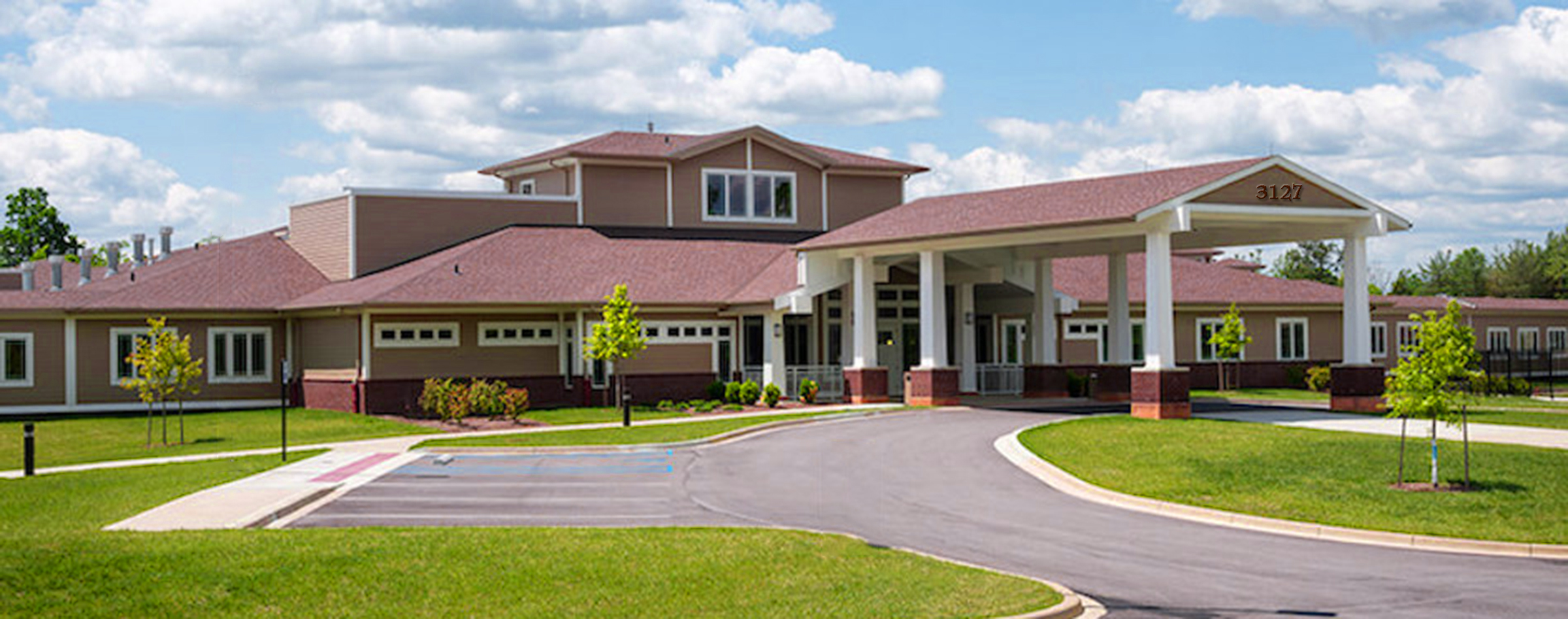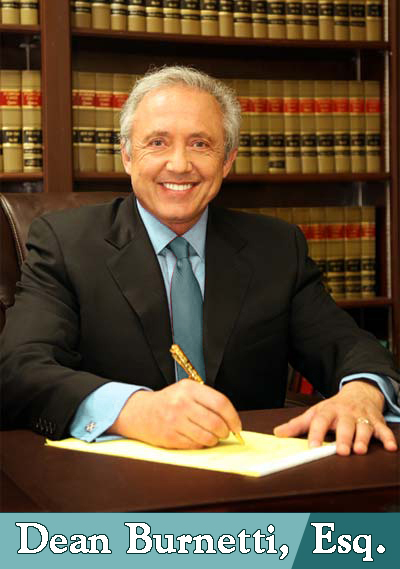Tips for Seeking a Nursing Home or Assisted Living Facility
The Central Florida Nursing Home Abuse Lawyers at Dean Burnetti Law provide professional Nursing Home Abuse, Nursing Home Negligence, and Nursing Home Injury Attorney Legal Services in Polk County, including: Lakeland, Auburndale, Bartow, Haines City, Lake Wales, Mulberry, Polk City, and Winter Haven; in Hillsborough County, including: Brandon, Tampa, Riverview, Valrico, and Plant City; in Pinellas County, including: Clearwater, St. Pete, Gulfport, Treasure Island, Largo, Oldsmar, Treasure Island; as well as in all of the surrounding Greater Central Florida Areas.

With the number of elderly living in Florida, people often wonder: How do I select a good nursing facility? Unfortunately, this question is often an afterthought and arises only after an incident has occurred.
Whether it’s a parent or a spouse in nursing care, it’s critical for family members to stay actively involved. Your vigilance will ensure that your loved one receives the best possible care while in their nursing facility.
Before you sign any documents admitting your loved one into the care of a nursing home, tour the facility. Federal regulations require skilled nursing facilities to provide the following to all residents:
- A clean, comfortable mattress;
- A bed of appropriate size and height;
- Bedding, which is appropriate to the weather/climate; A room with a window that provides natural light and orientation to the time of day, weather, and season; and
- Furniture appropriate to the resident’s needs, including a separate closet or clothing storage spaces.
These regulations also require nursing facilities to provide a “safe, clean, comfortable and homelike environment". In other words, the goal is for these facilities to feel less institutional and more homelike. Residents should be encouraged to bring items and personal effects from home. Doing so helps to create a meaningful and personalized environment.
Beyond the above, you will want to utilize many of your senses on your tour of the facility.
What smells do you notice when you walk in? How about as you walk down the corridors outside residents’ rooms or through common areas?
Unfortunately, nursing homes often harbor some not-so-pleasant smells. Some of these smells are unavoidable. Certain medications or diets often make residents gassier than normal. Plus, the aging process often causes the elderly to lose control of their bladder or bowels.
However, a facility that reeks of stale urine indicates a strong likelihood that it isn’t being cleaned properly. Worse yet, incontinent residents may not be changed and cleaned as often as they should be. Even worse, if many residents have bedsores, the nauseating smell of infection may be noticeable.
From the moment you enter the facility, stop and listen.
Take a moment, and really absorb the sounds you hear. Though residents moaning or yelling for help might be unsettling, that’s not necessarily a sign of mistreatment. However, keeping your ears tuned to how staff members address the residents may indicate something noteworthy. Remember, the generation going into nursing care these days came from a time when they were addressed as Mr. Johnson or Mrs. Williams. So, if the nursing staff calls them Sweetie, Honey, or Mama, the resident may lose dignity or feel as if they are being “spoken down to”. Furthermore, a resident with dementia may not even be responsive to the nickname.
Does the food look and taste palatable?
Plan to tour the facility during mealtime; then take note of whether residents are eating in a dining room or stay in their beds to eat. Remember, no one likes staring at the same four walls all day.
Also, meals should do more than meet the residents’ minimal dietary requirements. If the food doesn’t taste good to someone who is losing their sensory sensitivity (taste), they won’t eat it. If meals aren’t visually appealing to someone who is losing interest in eating, that’s another red flag.
Notice whether the residents are feeding themselves. If they are unable to feed themselves, is a staff member actively helping them? Or is the food getting cold while the resident waits for attention? Sometimes, understaffed facilities don’t have the manpower to help feed elderly patients who cannot feed themselves. This often causes the patient to lose a significant amount of weight in a short time.
How do the residents spend their waking hours?
As you tour the facility during the daytime, do you notice any residents outside and, if so, is a staff member with them? While residents should get some fresh air and sunshine each day, older skin can easily burn. Older people can also become quickly dehydrated. Furthermore, some residents may be prone to wandering. Therefore, a staff member should supervise all outdoor time.
As you continue your tour inside, note how many residents are still in bed. A crowd of residents circling the nurses’ station is only slightly better than them being stuck in their room all alone.
A quality facility will have a daily activity calendar for their residents. Activities may include such events as:
- Live music
- Sing-alongs
- BINGO
- Jigsaw puzzle time
- A board game room for use during unstructured times
- Church and worship times
- A Bible study hour
- Regular visits from local youth groups
- A walking tour
- Visits from various animal handlers
- An instructed exercise hour
- Visiting tutors who teach residents things such as how to use a smart phone
- Daily outdoor time
- A common TV room for use during unstructured times
- A gardening hour
- Bus trips to excursions, stores, or concerts for residents and their caregivers
- Art therapy
- Therapeutic cooking
- A book club
- Movie night
- Special interest clubs
- Ice cream socials
- Story time
- Holiday programs
- Quilting Bees
- Craft time
You’ll also want to pay attention to how the staff interacts with each other.
If the staff are rude to each other, they won’t think twice about being bad-mannered with a resident.
Additionally, if the common area radio or TV is tuned to shows or music for a twenty-something crowd, you’ll know those are tuned for the staff and not the residents.
Sometimes, a resident’s personal TV is tuned to a young children’s show. This causes the resident to lose dignity. When they lived at home, they watched adult shows; so, shows meant for children insult their age and intelligence. Furthermore, such shows are likely not even familiar to the resident.
Finally, pay attention to how the nursing staff spends time outside of direct care responsibilities. A bunch of nurse’s aides interacting with each other while residents are parked in wheelchairs looking bored is a problem.
Do you notice any bruising?
Every black-and-blue mark you see is not necessarily a sign of abuse. As people age, their skin becomes thinner and more fragile, and certain medications make them more likely to bruise easily. However, some contusions should not be ignored. Look for a hand or fingertip shaped bruises around the wrists or upper arms. Also, falls do not cause handprint-shaped marks on body parts; so, always question these bruises.
How does the facility handle a resident’s fall?
When you’re dealing with the elderly, falls can happen under even the best of circumstances; but it’s important to know how the staff reacts. Do they check for injuries? Do they help the resident get up off the floor safely? Sometimes, injuries aren't immediately apparent. Is the resident checked again later in the shift to see if any such bruises materialize?
Is the staff overworked?
Don’t be afraid to come right out and ask the nursing assistants and other staff if they work a lot of overtime or double shifts. If so, there’s a red flag that the facility may be short-staffed. This, in turn, can affect the quality of patient care. Likewise, you can ask the facility director what their staff to patient ratio is, then compare it on the Nursing Home Compare tool at Medicare.gov. Staff shortages increase the likelihood of overworked and overly stressed personnel.
Do you notice bedsores?
Sometimes, bedsores are unavoidable, especially as a resident becomes sicker and more immobile. However, if the resident is capable of being up and is developing bed sores, you want to question why he’s spending so much time in the same position? Even bed-bound residents need to be rotated every hour or two; furthermore, every rotation should be noted on the resident’s medical chart.
Are there other visitors you can talk to?
If you are able to talk to other visitors who already have a loved on there, see if you can ask them specific questions about the facility. Ask how long their family member has lived there and if they have ever noticed any red flags. Unfortunately, sometimes patients reside at a less-than-stellar facility because either they cannot afford to stay someplace better, or because a medical condition or necessary medical equipment or maintenance may require them to be there. (An example of this is that a patient with a feeding tube is required to stay at a “nursing home” and is not allowed to live in an “assisted living facility” which is typically nicer.)
Finally, you’ll want to look for safety devices as soon as you enter the facility.
Good nursing homes encourage visitors, so they need to keep their security measures as unobtrusive as possible while still maintaining a safe environment for their residents. Cameras and check-in systems can help residents stay safe without alarming or disrupting them. Light beams can monitor exits and hallways, and can even be used to alert the staff if a resident leaves his room. Many elderly folks, and particularly people in certain stages of Alzheimer’s disease are prone to wandering which can be dangerous. While the facility should not feel like a prison, the residents need to be secured for their own safety. Many facilities have secure, yet cleverly disguised, exits in their locked Alzheimer’s wings, so that the doors can’t be exited without code cards for the staff or a staff member “buzzing out” a visitor, so the wing remains secure, yet feels less like a prison.
If you were injured or if a loved one was injured or killed as a result of Nursing Home Abuse or Negligence, you have the right to a qualified attorney who is skilled in Florida's complex nursing home law and is knowledgeable about your type of injuries. Call (863) 287-6388 in Polk County or (813) 287-6388 in Hillsborough County or Pinellas County today to schedule a free confidential consultation with an experienced Nursing Home Abuse lawyer at Dean Burnetti Law.

Our Statement of Faith
We declare that Jesus Christ is the Lord of all. That the Holy Spirit abides in the midst of all within our halls. That the power of prayer is our shield and sword.
We declare that Christ is the cornerstone of this firm.
LAKELAND OFFICE
1937 East Edgewood Drive, Suite 102,
Lakeland, Florida 33803
Lakeland: (863) 287-6388
BRANDON OFFICE
413 Lithia Pinecrest Road,
Brandon, FL 33511
Brandon: (813) 287-6388
CLEARWATER OFFICE
2727 Ulmerton Road, Suite 250,
Clearwater, FL 33762
Clearwater: (813) 287-6388


